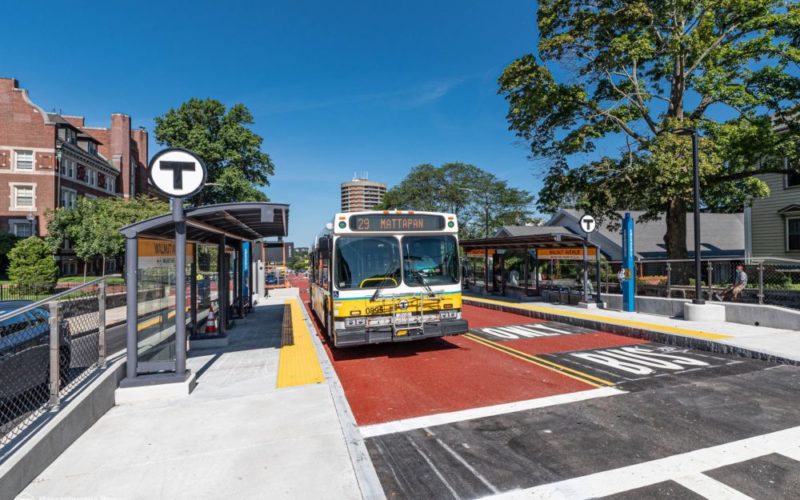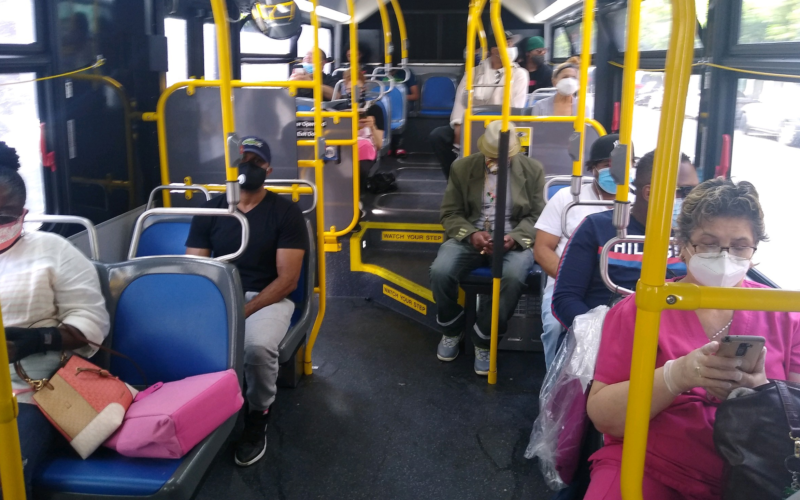
In the United States, transit agencies pay more for less when they build expansion projects.
The average cost premium in the U.S. is nearly 50% per mile for both at-grade and tunneled transit projects compared to international peers, according to the Eno Center’s Saving Time and Making Cents: A Blueprint for Building Transit Better, which was released in July. Despite building at this premium price, American transit projects tend to be less complex, have fewer stations, and be built away from city centers and dense development, where the need for transit is greatest.
Later this month — October 18-21 — Eno is hosting a symposium exploring the findings and implications of the report. Registration is open until October 12 — anyone interested in solving the project delivery problems that limit transit expansion and upgrades in the U.S. should attend.
Eno’s project team set out to determine how much higher American transit construction costs are than those of peer nations, why they had grown above global averages, and what can be done about it. They compiled a database of rail construction costs from 180 projects across the globe to determine how costs compare across geographies.
In addition to the cost premium (which soars much higher for projects in some of the nation’s biggest transit cities), Eno found that U.S. transit construction timetables are longer than in peer nations. American transit projects take more time to complete despite commonly being built in less dense areas or along rights of way such as freight rail or highway corridors, compromises that are supposed to streamline construction at the expense of rider safety and ease of access.
To identify which aspects of governance and the planning and construction process may account for differences in project costs, Eno interviewed professionals with direct experience managing rail projects in the United States and in countries with comparable labor and regulatory environments.
Eno grouped recommendations into three buckets: governance, process, and standards. Adopting these recommendations would require action from nearly all stakeholders involved in the rail construction process. Reforms at the local, state, and federal level will be necessary to bring U.S. construction costs in line with those of its international peers.
Below is a summary of Eno’s major recommendations — for details, read the full report.
Governance:
- The public institutions charged with leading the delivery of transit projects need authority, staff, and good governance to move projects forward.
- Project sponsors need to understand, manage, and commit to whatever project delivery method is most appropriate for the project.
- Projects need to be developed smartly so contracts are not too large to be effectively managed, procurement goals are realistic, and the best value is returned for public dollars.
- Agency staff need appropriate training in order to manage projects, construction staff, and consultants.
Process:
- The federal NEPA statute does not need to be reformed, but the processes by which federal agencies reach a record of decision does.
- States and project sponsors also need to invest in the staff and processes for their own permitting and environmental review.
- The planning and public engagement process needs greater investment and more attention.
- Policy and practice reforms are needed to address significant shortcomings related to utility relocation and land acquisition.
Standards:
- Customization should be deemphasized in favor of updated standardization to save on construction costs and speed up delivery.
- Transit projects in the United States need to maximize their public benefits.
Register here for Eno’s symposium on “Saving Time and Making Cents.”
 Announcing the 2021 Frequency Award Winners!
Announcing the 2021 Frequency Award Winners!
TransitCenter’s annual Frequency Awards recognize outstanding work in the transit field. Here are the 2021 honorees...
Read More Testimony to New York State Senate on Finances and Operations of the MTA
Testimony to New York State Senate on Finances and Operations of the MTA
The ground has shifted, and the transit system must adapt and change in response -- or else the future for subway and bus riders looks bleak, as do the prospects for the entire New York City region.
Read More